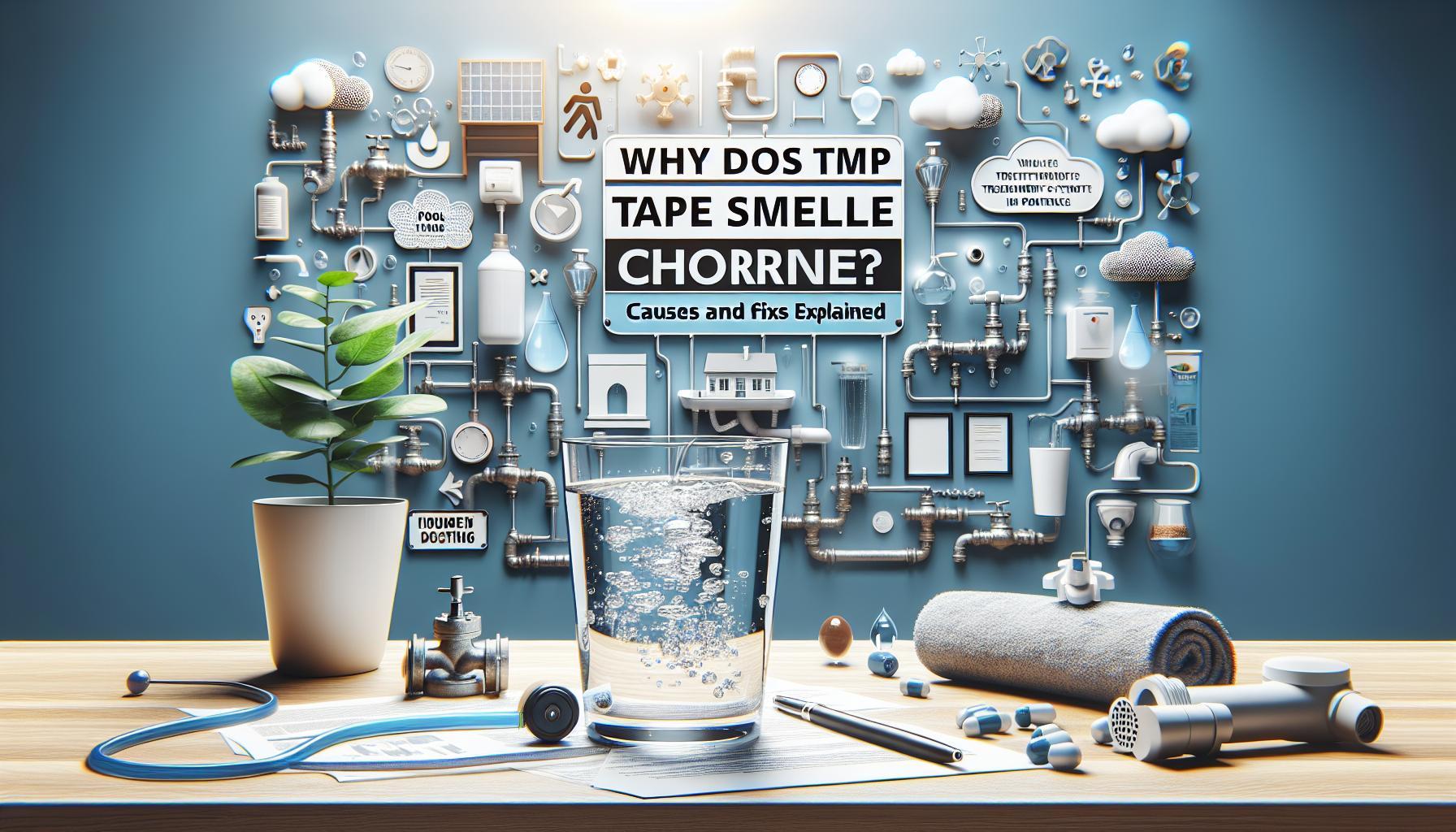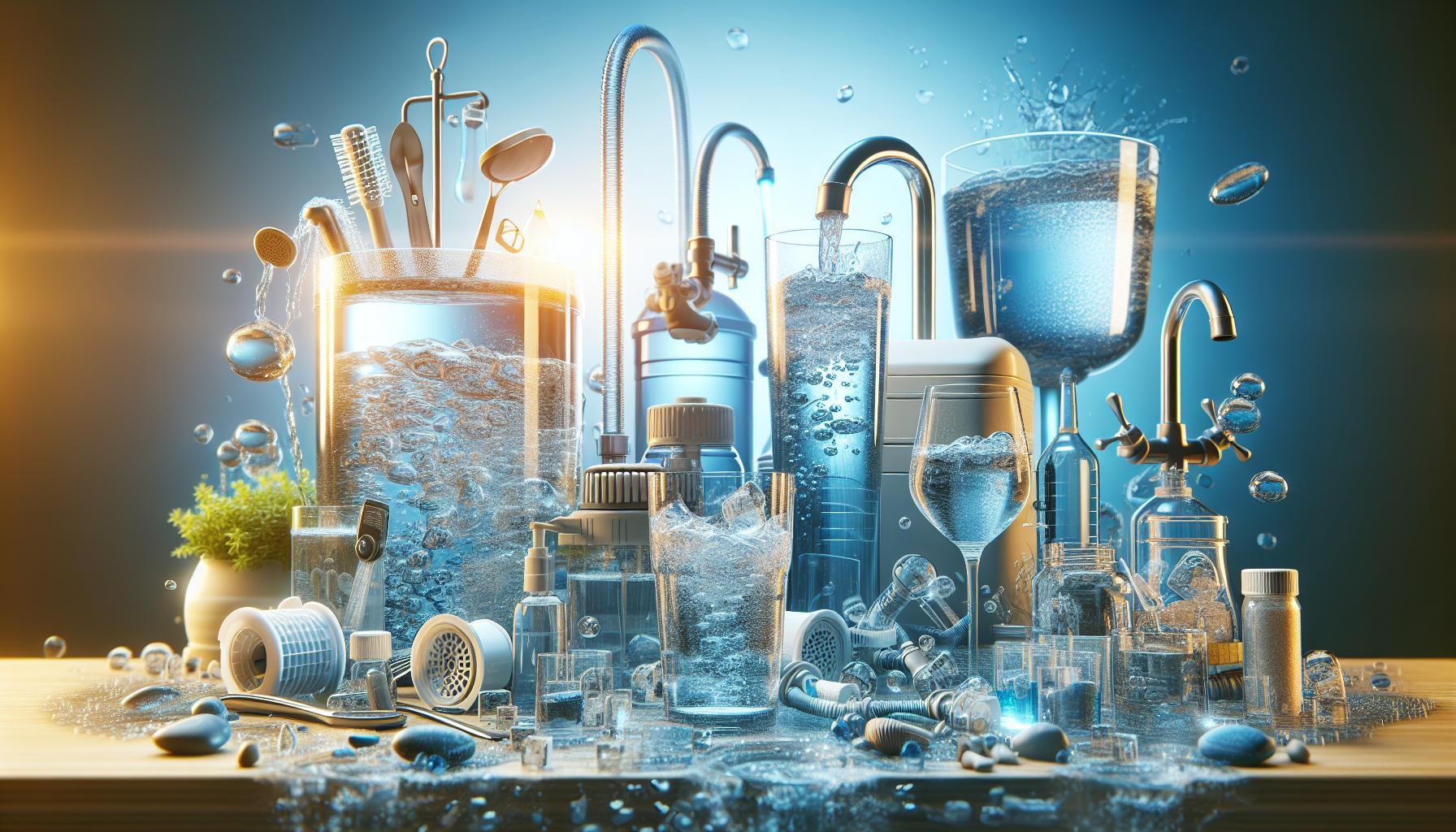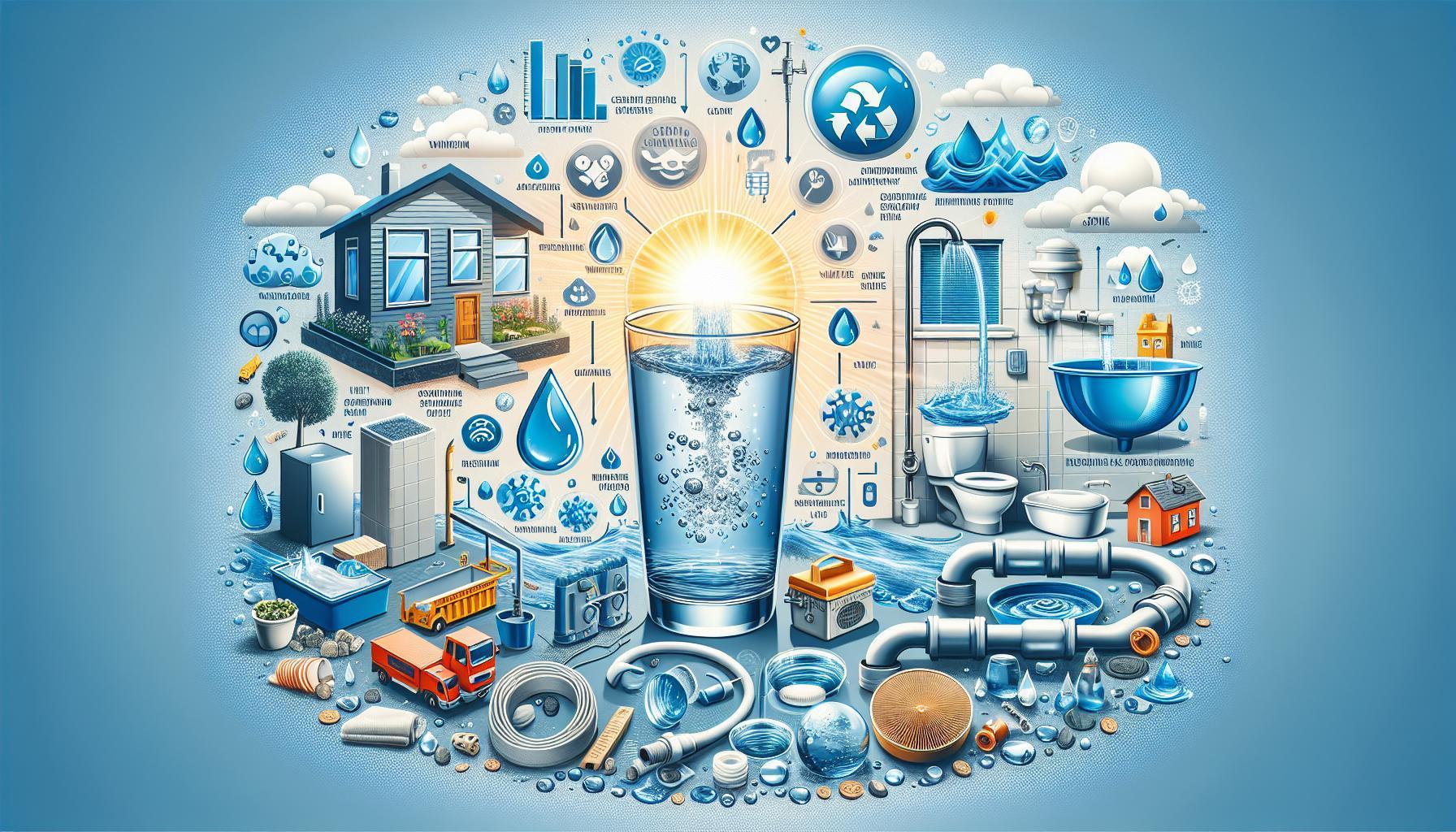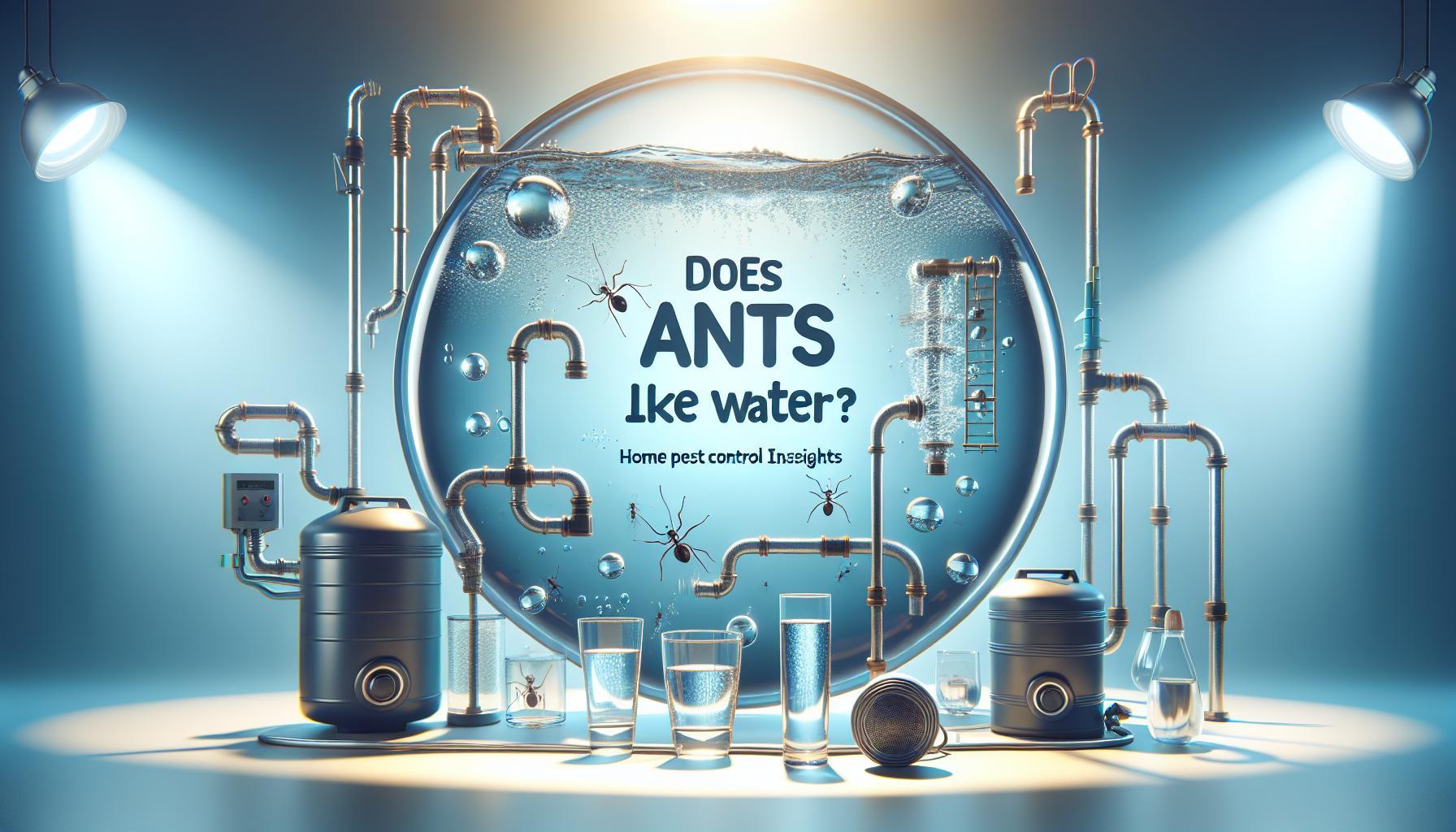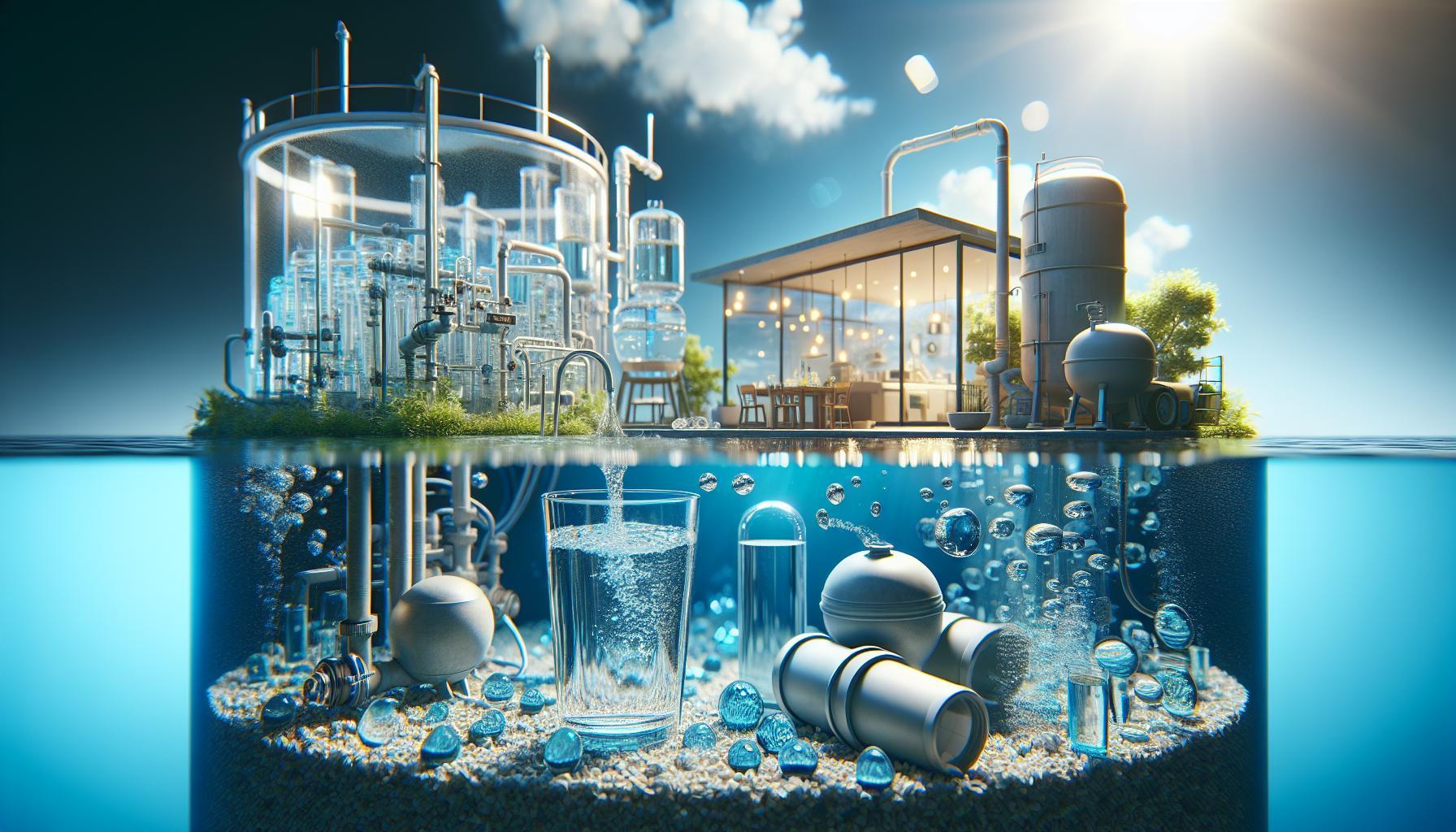Is the distinct smell of chlorine in your tap water causing concern? This common issue can stem from water treatment processes designed to eliminate harmful bacteria, but it can also lead to unpleasant smells and potential health risks. Understanding the reasons behind this odor and how to address it is essential for ensuring your drinking water remains safe and pleasant.
Understanding the Role of Chlorine in Your Tap Water
Chlorine plays a critical role in ensuring the safety and quality of tap water, functioning primarily as a disinfectant. Municipal water systems add chlorine during treatment to eliminate harmful bacteria and pathogens, making water safe for consumption. Although its presence in water can cause an unpleasant odor reminiscent of swimming pools, the benefits of chlorine—like preventing waterborne diseases—outweigh the drawbacks for many consumers. Understanding why your tap water smells like chlorine and the implications for your health is essential for making informed decisions about water safety.
The Importance of Chlorine in Water Treatment
Chlorine is widely used in water treatment for several reasons:
- Effective Disinfection: Chlorine is extremely effective at killing bacteria and viruses that can contaminate water supplies.
- Residual Protection: It provides a residual effect, meaning it continues to disinfect as water travels through pipes to your home.
- Cost-Effective: Chlorine is relatively inexpensive compared to other methods of disinfection, making it a popular choice for municipalities.
Despite its advantages, the use of chlorine has raised concerns. When chlorine reacts with organic materials found in water, it forms trihalomethanes (THMs), which have been linked to various health issues. Research indicates that prolonged exposure to high levels of THMs may increase the risk of certain cancers and other health concerns. Understanding these dynamics is crucial, and those who are particularly sensitive to chlorine or its by-products may want to look into filtration options.
Addressing Chlorine Odor in Your Water
Experiencing a strong smell of chlorine in your tap water can be off-putting, but there are various ways to tackle this issue. Here are some practical steps you can take:
- Let It Sit: Allowing your water to sit for a few hours can help the chlorine dissipate naturally.
- Use Activated Carbon Filters: These filters are highly effective at removing chlorine and its by-products.
- Consider a Reverse Osmosis System: This method can remove various contaminants, including chlorine, delivering cleaner water.
In summary, while chlorine is essential for keeping our drinking water safe, the odor it imparts can be unpleasant. By and implementing simple solutions, you can enjoy safe, great-tasting water while minimizing any undesirable smells.
Common Reasons Your Water Smells Like Chlorine
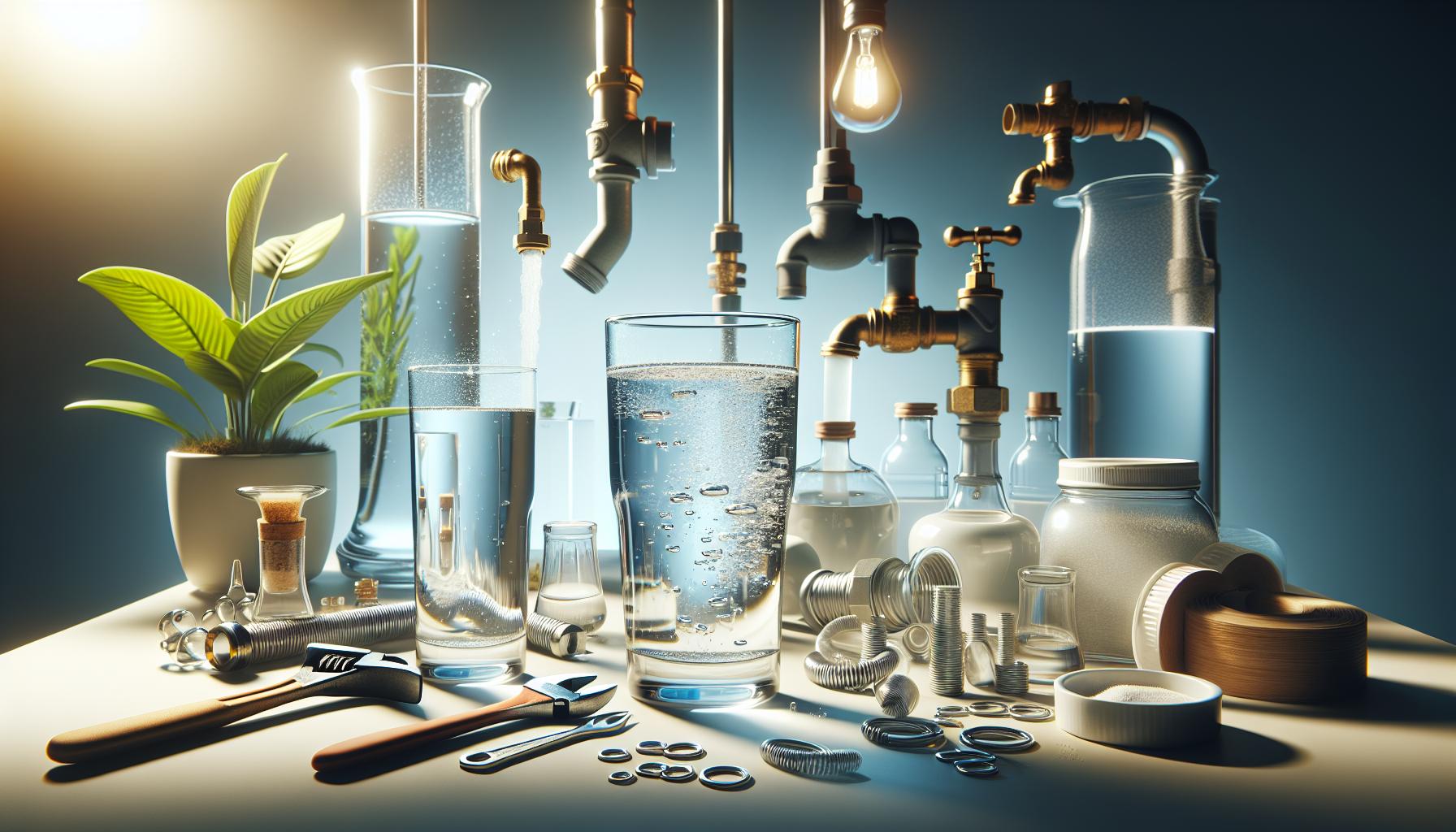
The unmistakable scent of chlorine in your tap water can be off-putting, but understanding its origins can help you address this common issue effectively. Chlorine is widely used as a disinfectant in municipal water systems, serving to kill harmful bacteria and pathogens. However, there are several reasons why this chemical might become more pronounced in your home’s water supply.
Disinfection Practices
One of the most prevalent reasons for a chlorine smell is the water treatment process used by municipal suppliers. Chlorine is often added in significant amounts to ensure that contaminants are eradicated before reaching your faucet. During summer months, when water demand peaks, treatment plants may increase chlorine levels to accommodate elevated bacterial growth. Additionally, the water might travel longer distances through pipes, which can lead to a stronger chlorine smell by the time it flows from your tap.
Piping and Plumbing Issues
The condition of your home’s plumbing system can also contribute to the chlorine odor. Old or degraded pipes can react with the chlorine in the water, amplifying its scent. For example, if your household uses metal pipes, the chlorine can interact with rust or other corrosion products, which can intensify the smell. If you notice a chlorine scent primarily from certain faucets, it may be wise to inspect that section of your plumbing for issues.
Water Stagnation
Water that sits stagnant in pipes for extended periods is another culprit behind elevated chlorine smells. This situation often occurs in homes or buildings that are infrequently used, such as vacation homes or properties that are temporarily vacant. When chlorine levels drop due to stagnation, the reintroduction of fresh water can lead to a noticeable change in odor as the chlorine concentration resets.
Strategies to Mitigate the Chlorine Smell
To alleviate the chlorine smell in your tap water, consider employing the following strategies:
- Activated Carbon Filters: These can effectively absorb chlorine and its byproducts, leading to fresher tasting and smelling water.
- Letting Water Sit: Allow water to sit in an open container for a few hours. This can help chlorine dissipate naturally.
- Check Installation of Water Softeners: If water softeners are in place, ensure they are functioning correctly; malfunctioning units can increase chlorine odors.
By understanding the various factors leading to chlorine smells in your tap water, you can take steps to mitigate them. For many households, simple adjustments can not only enhance the quality of their water but also contribute to a more pleasant drinking and cooking experience.
Health Implications: Is Chlorine in Water Safe?
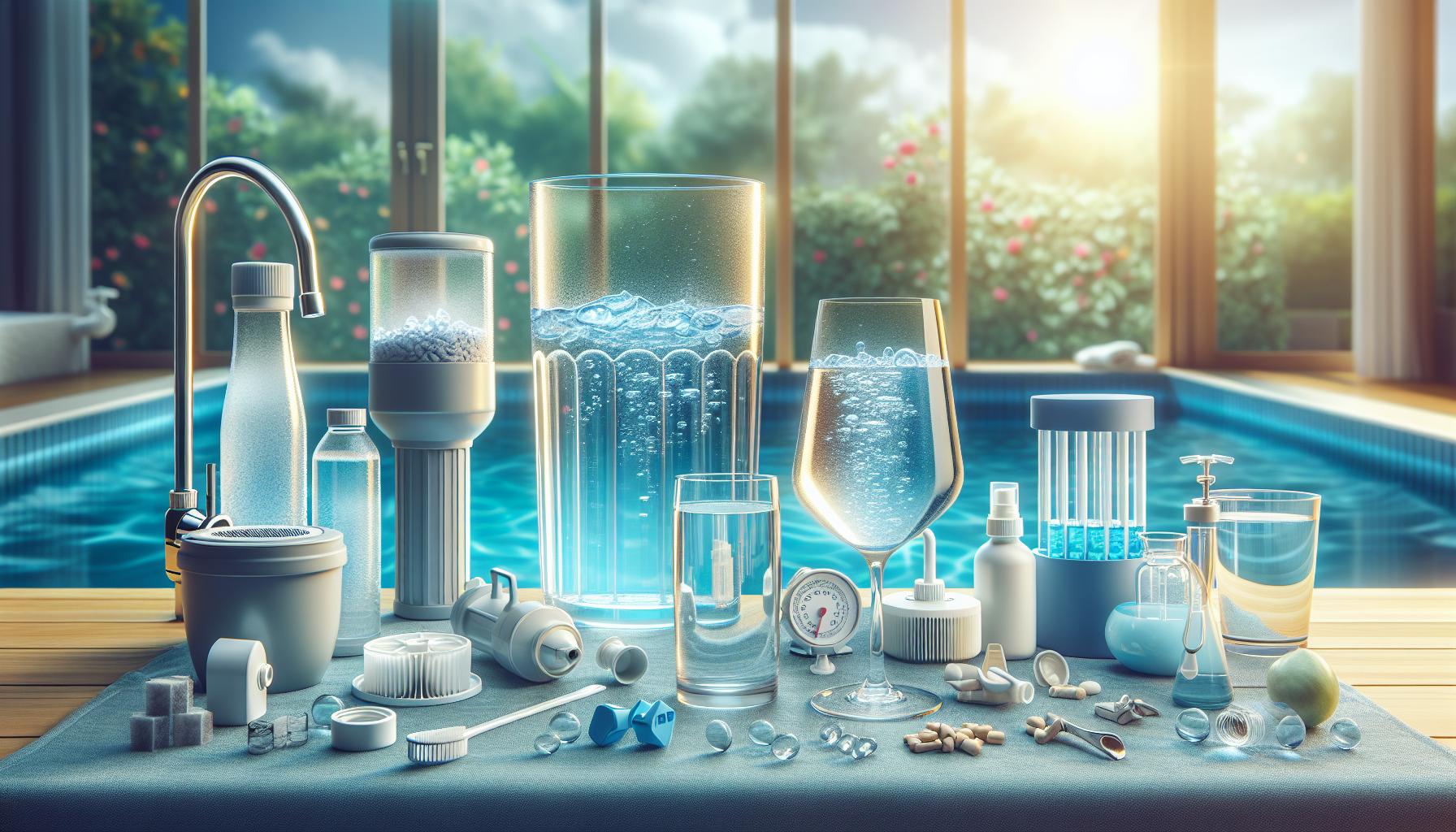
Water treatment processes commonly employ chlorine as a key disinfectant due to its effectiveness in killing harmful pathogens that may be present in drinking water. However, the very presence of chlorine can lead to questions about safety and health implications. Understanding the balance between water safety and the potential risks associated with chlorine is essential for anyone taking a sip from the tap.
Health Concerns Associated with Chlorine
The primary function of chlorine in water is to eliminate bacteria and viruses that could pose health risks. According to the CDC, chlorine effectively disinfects drinking water and significantly reduces the incidence of waterborne diseases. However, chlorine can also form byproducts when it reacts with organic materials, potentially leading to disinfection byproducts (DBPs) such as trihalomethanes and haloacetic acids. These DBPs have been studied for possible links to health issues, including cancer and developmental problems in fetuses.
To mitigate these risks, it’s critical to monitor chlorine concentrations regularly. The Environmental Protection Agency (EPA) sets limits on allowable levels of chlorine and its byproducts, ensuring they remain below thresholds considered harmful. For most people, drinking chlorinated water at regulated levels poses minimal risk, but sensitive populations—including pregnant women, young children, and individuals with compromised immune systems—should consult healthcare professionals regarding their specific risks.
Mitigating Chlorine’s Impact
If the scent of chlorine in your tap water raises concerns, several practical strategies can help mitigate its effects without sacrificing safety:
- Let Water Sit: Allowing tap water to sit for a few hours can help dissipate chlorine, particularly if you leave it uncovered.
- Use a Filter: Installing a water filter designed to remove chlorine can provide immediate relief from the chemical’s taste and odor while ensuring water safety.
- Boil Your Water: Boiling water can also help reduce chlorine levels, as it evaporates at high temperatures.
By adopting these strategies, you can enjoy cleaner, better-tasting water while keeping health concerns at bay. In summary, while chlorine plays a vital role in water disinfection, awareness and proactive measures regarding its use can ensure that your tap water remains both safe and pleasant to drink.
Simple Solutions to Reduce Chlorine Odors in Your Water
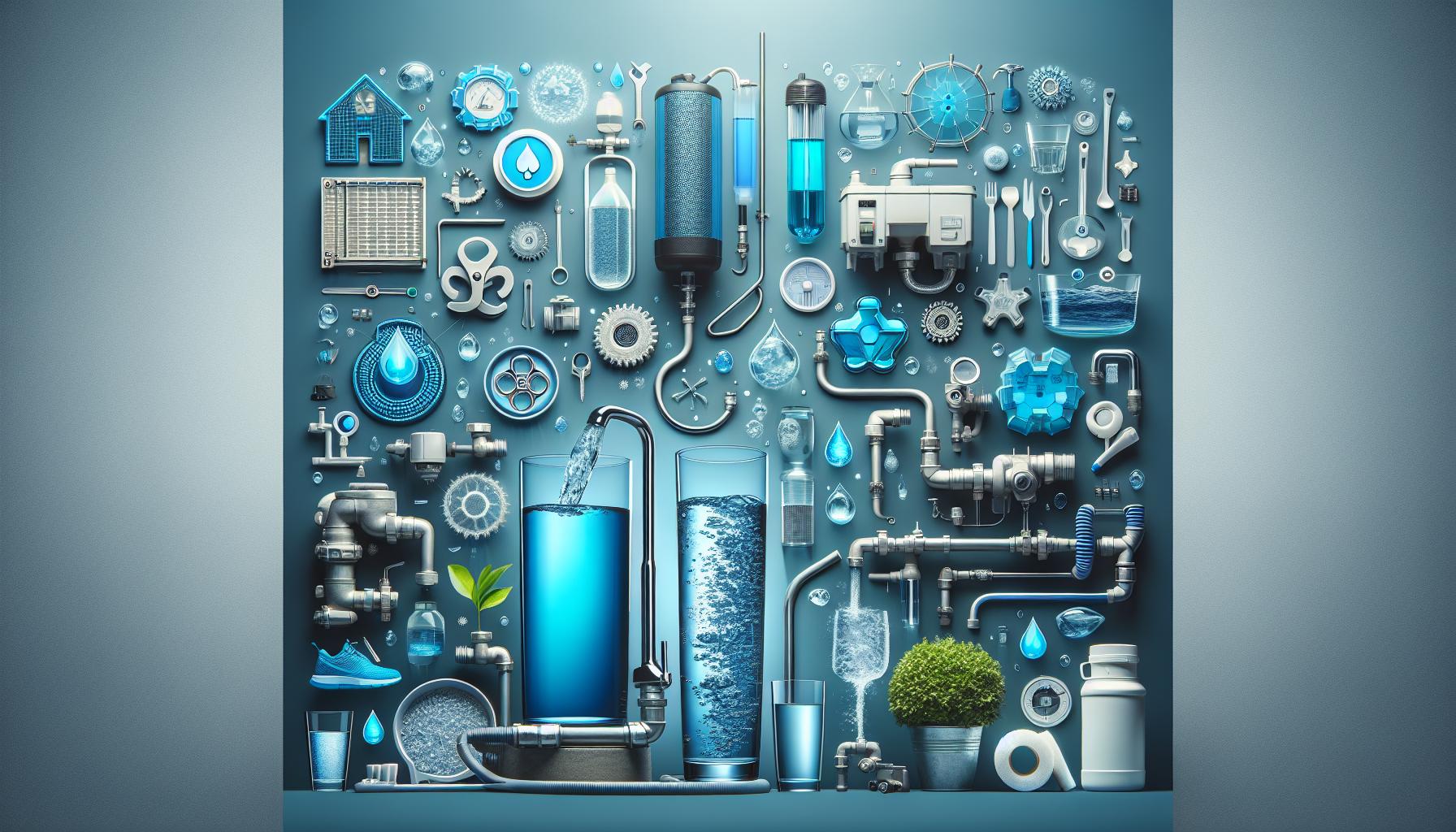
Many homeowners are startled to discover that their tap water has a strong chlorine smell. This odor can be both unpleasant and concerning, often leading to questions about its source and implications for health. Fortunately, there are straightforward strategies you can implement to mitigate chlorine odors in your water, allowing you to enjoy refreshing, clean-tasting H2O without the overwhelming scent of bleach.
Filtration Systems
One of the most effective ways to eliminate chlorine odors is by installing a water filtration system. These systems not only remove chlorine and its byproducts but also improve the taste and overall quality of your water. Consider the following options:
- Activated Carbon Filters: These filters are widely recognized for their ability to absorb chlorine and other volatile organic compounds, providing you with fresh-tasting water.
- Reverse Osmosis Systems: This technology does a more thorough job of purifying water, removing up to 99% of chlorine, as well as contaminants and impurities.
- Whole House Filters: If you’re seeking a comprehensive solution, a whole house filtration system treats all the water coming into your home, combating chlorine at the point of entry.
Allowing Water to Breathe
If installing a filtration system is not feasible, you can still take simple steps to reduce chlorine odors. One effective method is allowing your water to sit out in an open container for a few hours. During this time, the chlorine will evaporate, significantly diminishing the odor. Here’s how to do it:
- Fill a pitcher or bowl with tap water.
- Leave it uncovered in the refrigerator or on the counter for 2 to 24 hours, depending on your schedule.
- Use the treated water for drinking or cooking, enjoying a more pleasant taste and smell.
Using Lemon or Other Flavorings
Another easy solution to mask the chlorine smell is to add slices of lemon, lime, or other fruits to your water. Not only does this introduction of natural flavors help to minimize the odor, but it also enhances hydration in a refreshing way. Try these:
- Add a few sprigs of mint or slices of cucumber for an extra touch.
- Experiment with different fruits to find your favorite flavor combination.
For those who frequently ask themselves, “Why does my tap water smell like chlorine?”, implementing these simple solutions can make a significant difference in your daily water quality. By taking proactive steps, you can enjoy great-tasting water free from unpleasant odors.
The Impact of Plumbing and Fixtures on Water Smell
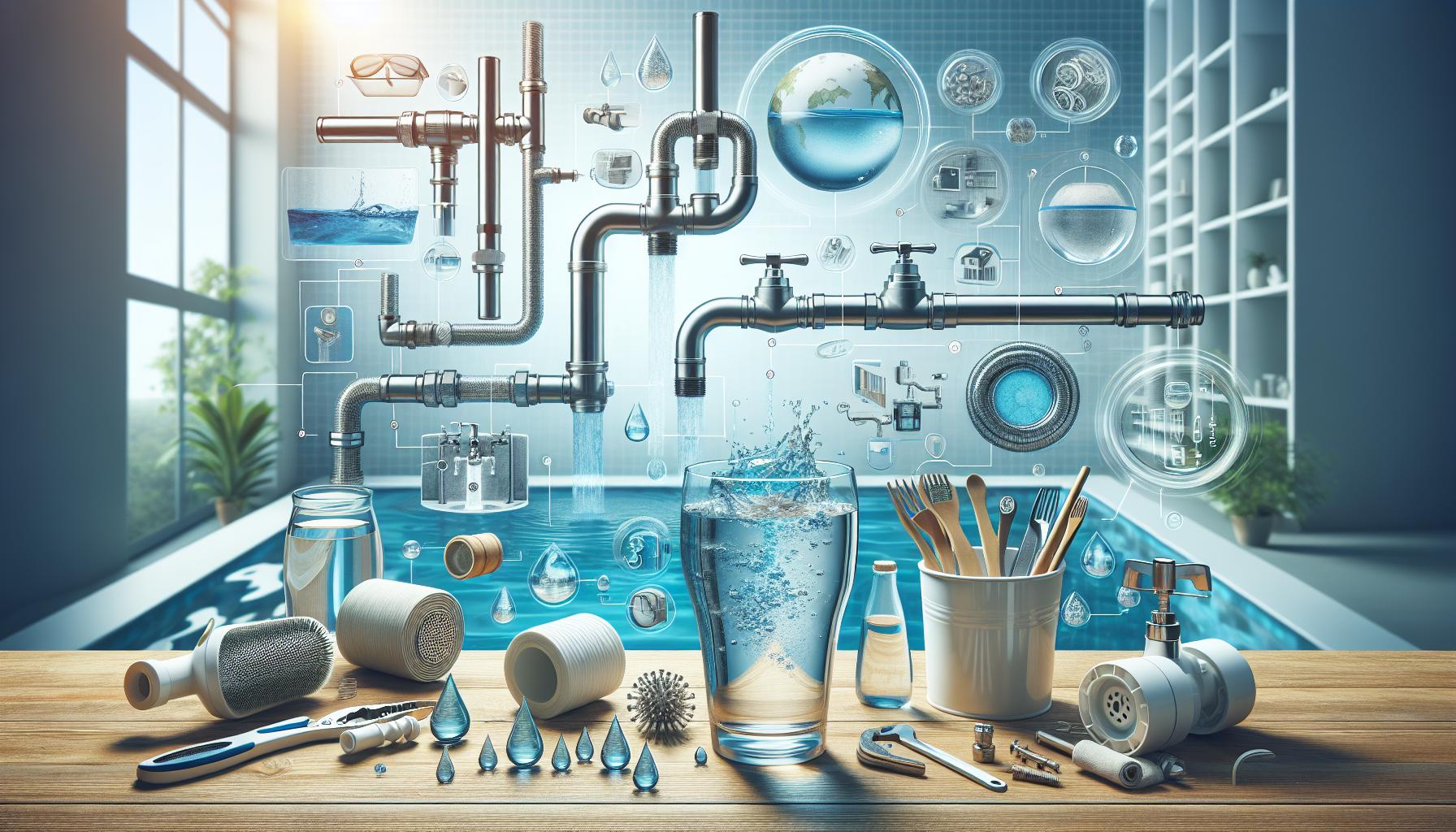
The condition of your plumbing system and fixtures can significantly influence the odor of your tap water. Many homeowners don’t realize that the materials used in pipes, faucets, and other fixtures can interact with the water supply in ways that alter its scent. For instance, older plumbing systems—especially those made from galvanized steel or lead—can leach substances into the water, creating unpleasant smells and sometimes even compromising water quality.
Understanding the Chemistry of Plumbing Materials
Various plumbing materials can alter the composition of your water. Here’s how common plumbing components might affect the smell of tap water:
- Galvanized Pipes: These can corrode over time, releasing rust and metals which may contribute to a metallic or musty smell.
- Plastic Pipes: PVC and CPVC pipes can emit a faint chemical odor, particularly when new, due to the manufacturing materials used.
- Rubber Seals and Washers: Fixtures often contain rubber components that can degrade with time, releasing odors that clash with the water’s scent.
- Water Heaters: Bacterial buildup in a water heater can produce a sulfur-like smell, which may be more pronounced if the heater is not flushed or maintained regularly.
Identifying the Source Through Testing
If you notice a chlorine-like smell in your tap water, it’s essential to consider the plumbing aspects as potential culprits. Sometimes, the smell isn’t solely due to chlorine being added by water treatment facilities. Performing a water quality test can reveal a lot about what’s in your pipes. Home testing kits measure levels of chlorine, lead, and other contaminants, providing insight into whether your plumbing fixtures are the problem.
| Contaminant | Possible Source | Impact on Smell |
|---|---|---|
| Chlorine | Municipal water treatment | Strong chemical smell |
| Bacteria | Stagnant water or old pipes | Musty or rotten egg smell |
| Rust | Corroded pipes | Metallic smell |
| Plastics Chemicals | New PVC pipes | Chemical odor |
Practical Solutions for Odor-Free Water
To mitigate unpleasant odors linked to plumbing, consider these steps:
- Replace Old Pipes: Upgrading from galvanized or lead pipes to more modern options like copper or PEX can dramatically improve the smell of your water.
- Flush Your System: Regularly flushing your plumbing system can help eliminate stagnation, reducing bacterial growth and odors.
- Install Filters: Water filters can effectively reduce chlorine and other smells. Look for filters designed for specific contaminants based on your water quality testing results.
- Maintain Appliances: Regular maintenance of water heaters and other appliances helps prevent bacterial growth that can lead to unpleasant smells.
By understanding the link between plumbing and water quality, you can effectively address why your tap water might smell like chlorine—or other undesirable odors. Taking actionable steps can lead to cleaner, fresher-tasting water in your home.
Exploring Alternative Water Treatment Options
Exploring the world of water treatment options reveals a variety of innovative solutions for those frustrated by the distinct chlorine odor wafting from their tap water. While chlorine is used as a disinfectant in municipal water systems, some individuals are increasingly seeking alternatives that not only alleviate the offending smell but also enhance the overall quality of their drinking water.
When considering alternatives, you may find the following methods particularly effective:
Filtration Systems
Filtration systems can greatly improve the taste and odor of tap water. Here are several popular options:
- Activated Carbon Filters: These filters effectively reduce chlorine levels, providing fresher-tasting water without harsh chemicals.
- Reverse Osmosis Systems: This advanced technology removes a wide array of contaminants, including chlorine, ensuring a highly purified drinking water supply.
- Whole-House Filters: These systems treat water at the point of entry, eliminating the chlorine smell throughout your home, including showers and appliances.
Ultraviolet (UV) Light Treatment
Another alternative to consider is UV light treatment, which disinfects water by using ultraviolet rays to kill bacteria and viruses without chemical additives. This process not only reduces odors but can also improve the safety and quality of drinking water.
Dechlorination Methods
If you’re looking for ways to remove chlorine from your tap water before consumption, consider these dechlorination methods:
- Boiling: Boil water for at least 15 minutes to effectively dissipate chlorine.
- Aeration: Allowing water to sit in an open container for several hours can help chlorine evaporate naturally.
Comparative Table of Water Treatment Options
Below is a simple comparison of the most popular alternatives for treating chlorine-laden tap water:
| Method | Effectiveness | Cost | Maintenance |
|---|---|---|---|
| Activated Carbon Filter | High | Moderate | Low |
| Reverse Osmosis | Very High | High | Moderate |
| UV Light Treatment | High | Moderate | Low |
| Boiling | Moderate | Low | None |
By exploring these alternative water treatment options, you can take decisive action against the unpleasant chlorine smell in your tap water, ultimately leading to a better drinking experience and improved health. Transitioning to a filtration system or employing dechlorination techniques could transform your relationship with tap water, ensuring that every glass is as clean and fresh as possible.
When to Consult a Professional About Water Quality
A strong and unpleasant chlorine smell in your tap water can be a cause of concern for many homeowners. It’s not uncommon to wonder whether this odor signals a larger issue or if it’s simply a characteristic of municipal water treatment processes. While chlorine is commonly used to disinfect drinking water and is effective in killing harmful bacteria and viruses, excessive levels or unusual odors warrant attention. Knowing is crucial for your health and well-being.
There are several key indicators that should prompt you to seek expert advice regarding your tap water. If you consistently notice a strong chlorine smell that seems to intensify over time, it may indicate the presence of higher-than-normal chlorine levels or the presence of other contaminants. Additionally, if the odor is accompanied by other changes—such as discoloration of the water, unusual tastes, or the presence of particles—these can also be signs that a professional assessment is needed.
When to Engage a Water Quality Expert
Consider consulting a professional under the following circumstances:
- Persistent Odors: If the chlorine odor does not dissipate after letting the water sit, or if there are fluctuations in the smell, it’s advisable to call in an expert.
- Health Concerns: If you or other household members experience unexplained health issues, such as skin irritation or gastrointestinal problems, these could be linked to water quality.
- Local Water Quality Reports: If recent reports indicate water contamination or changes in local water treatment practices, a professional can help assess your specific situation.
If you suspect your tap water quality may be compromised, reaching out to a water quality specialist is a proactive step. They can conduct detailed testing, interpret results, and recommend solutions based on your specific circumstances. This might include suggesting water filtration systems or advising on potentially necessary plumbing adjustments.
In conclusion, while a chlorine smell does not necessarily pose an immediate threat, it’s important to stay vigilant. By being aware of when to seek professional help, you can ensure that your water remains safe and healthy for you and your family.
Tips for Maintaining Fresh-Smelling Tap Water at Home
Ensuring that your tap water smells fresh can create a more pleasant home environment and enhance the appeal of drinking water straight from the faucet. If you’ve ever wondered why your tap water may have a chlorine odor, you are not alone. Many households experience this issue due to the treatment methods used by municipal water suppliers. Fortunately, there are several effective strategies to keep your water smelling clean and free from unwanted odors.
Keep Your Water System Clean
Regular maintenance of your plumbing system plays a key role in preventing unpleasant smells in your tap water. Residue buildup can contribute to the development of odors. Here are some recommended practices:
- Flush Your System: Periodically run cold water for a few minutes before you use it, especially if the faucet has not been used for some time. This helps remove stagnant water that may have developed a smell.
- Inspect Filters: If you have a water filter installed, make sure to replace the cartridges as suggested by the manufacturer. Filters can harbor bacteria and other impurities that can cause odors.
- Descale Regularly: Hard water can lead to mineral buildup that may affect the taste and smell of water. Consider using a descaling solution or a water softener to prevent these issues.
Optimize Water Storage
The way you store your water can also influence its scent. If you are using a storage tank or bottles, employing a few best practices will help maintain that fresh smell:
Storage Tips
- Choose the Right Container: Use glass or food-grade plastic containers for storing water, as these materials are less likely to impart odors compared to metal alternatives.
- Avoid Sunlight: Store water in cool, dark places to prevent the growth of algae and bacteria, which can produce unpleasant smells.
- Keep It Sealed: Make sure your storage containers are always tightly closed to prevent contaminants from entering.
Consider Water Treatment Solutions
If your tap water continuously smells like chlorine, you might want to explore water treatment solutions. Here are a few that can help:
| Treatment Method | Benefits |
|---|---|
| Activated Carbon Filters | These filters can effectively reduce chlorine taste and smell, improving overall water quality. |
| Reverse Osmosis Systems | Removes a wide variety of contaminants, including chlorine, offering cleaner and better-tasting water. |
| UV Purification | This method kills bacteria and viruses without adding chemicals that can affect water smell. |
By taking steps to maintain your water system, optimizing storage practices, and considering advanced treatment options, you can reduce the chlorine smell in your tap water and enjoy refreshing, clean hydration all year round.
Q&A
Why does my tap water smell like chlorine?
If your tap water smells like chlorine, it usually indicates the presence of chlorine used for disinfection. Chlorine is commonly added to municipal water supplies to eliminate harmful bacteria and pathogens.
While this is an essential safety measure, the odorous compounds can be off-putting. If you notice a strong chlorine smell, it might be worth checking with your local water authority regarding their treatment processes, as chlorine levels can vary.
What can I do to reduce the chlorine smell in my water?
You can reduce chlorine smells by letting your tap water sit for a few hours to allow the chlorine to evaporate. Activated carbon filters can also effectively remove chlorine and improve taste.
Additionally, consider using a pitcher with a filter or installing a whole-house filtration system. Both methods can make a significant difference in how your water tastes and smells, leading to a more pleasant experience.
Can I drink water that smells like chlorine?
Yes, water that smells like chlorine is generally safe to drink, as chlorine is used to disinfect drinking water. However, if the smell is overwhelming, consider using a filter or letting it sit to dissipate.
Although drinking chlorinated water is not harmful in the short term, excessive chlorine consumption can lead to other issues. If you’re concerned, regularly check your water quality or consult your local health department.
Why is there chlorine in my tap water?
Chlorine is added to tap water as a disinfectant to kill bacteria and other harmful organisms. Municipal water systems typically use it to ensure safe drinking water.
This practice helps prevent waterborne diseases. However, some systems may use alternative disinfectants like chloramine, which has its distinct odor. Understanding your water source can help address potential concerns.
How can I tell if the chlorine smell is too strong?
A strong chlorine smell in your tap water is noticeable; it often feels overwhelming when you fill a glass. In general, anything beyond a mild scent might require further attention.
If the odor bothers you, it’s wise to contact your local water authority for testing. They can provide insight into chlorine levels and any potential changes in water treatment processes.
What happens if I intake too much chlorine through water?
Consuming small amounts of chlorine through tap water is usually safe, but high levels can cause nausea or upset stomach. Chlorine exposure is typically limited by regulations.
If you suspect you’ve consumed too much or experience symptoms, it’s advisable to consult with a healthcare provider. Regular testing of water can help ensure safety and inform you about chlorine levels.
Are there alternatives to chlorinated tap water?
Yes, there are alternatives to chlorinated water, including filtered water options and bottled water. Filtration systems can effectively remove chlorine while improving taste.
Consider reverse osmosis systems or spring water, which do not contain added chlorine. Researching your options can help you find the best solution for your household’s water needs.
Key Takeaways
In conclusion, if your tap water smells like chlorine, it’s essential to understand the causes and explore effective solutions. From the necessity of disinfecting water supply systems to temporary situations that might introduce chlorine odors, the reasons can vary. Remember, addressing the issue may be as simple as letting your water sit for a while, investing in a water filter, or increasing ventilation in your storage areas. Don’t hesitate to take control of your water quality; your health and comfort are paramount. We encourage you to further investigate your options and share your experiences as an empowered consumer. Clean and pleasant-tasting water is within your reach!

